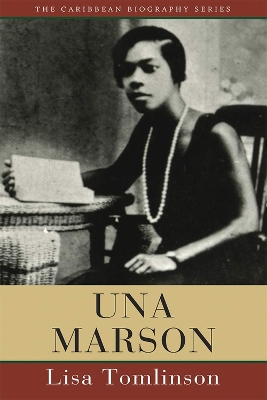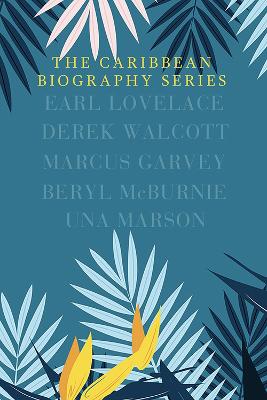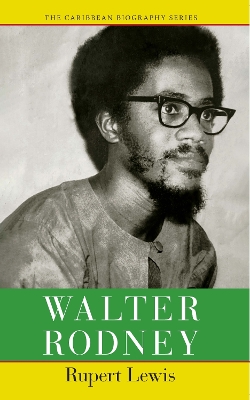Caribbean Biography
3 total works
Una Marson's work embodied anti-colonialism, anti-racism, feminism, class politics and pan-Africanism in the first half of the twentieth century. Her poetry and dramatic work symbolically ushered in a new era in Jamaica's literary landscape and her efforts in championing early Jamaican literature, as well as her avid support for Caribbean writers in Britain and the region, made her a key proponent of the development of a national and West Indian literary canon. She challenged racial inequality, affirmed standards of black beauty and black identity, and explored the complexities of gender, religious discrimination and class/economic exploitation. She did not frame her work around a single cause but, instead, she was mindful of the multiple intersections of oppression. Britain's hold on Jamaica's cultural imagination would finally be challenged by artists like Marson who were eager to free their nation of colonial authority and cultural dominance. In the end, through her advocacy and pioneering work, Marson achieved a voice for the oppressed.
The Caribbean Biography Series Boxed Set
by Funso Aiyejina, Edward Baugh, Rupert Lewis, Judy Raymond, and Lisa Tomlinson
Published 30 December 2019
The Caribbean Biography Series from the University of the West Indies Press celebrates and emorializes the architects of Caribbean culture. The series aims to introduce general readers to those individuals who have made sterling contributions to the region in their chosen field – literature, the arts, politics, sports – and are the shapers and bearers of Caribbean identity.
Among the critical questions that Rodney dealt with whether he was in Tanzania, Jamaica or his native Guyana (formerly British Guiana) was the character of the postcolonial state and its relationship with the working people. It is his engagement with politics that guided his research into African and Caribbean history. In the post-World War II era the colonial powers had regrouped and were rebuilding Europe with the strong financial and political support of the capitalist United States. The Soviet Union, one of the victors over German fascism, was the other power on the world scene. It was communist, and engaged in a Cold War with the United States, the dominant global power. China under Mao Tse Tung was the other communist state that had emerged after the 1949 revolution with a huge rural population, much poverty and a low level of industrialization. Capitalist and socialist powers vied for the hearts and minds of the peoples of Asia, Africa and the Caribbean that were shaking off the shackles of colonialism. Latin American countries which had achieved their political independence in the nineteenth century were caught up in this nationalist surge as they battled with neo-colonialism. They battled with Spain their colonial overlord, but also with the United States which regarded Latin America and the Caribbean as its backyard and intervened as it saw fit to pursue its strategic military, political and economic goals.
The Garvey and labor movements of the 1920s and 1930s in the Caribbean as well as communist and national liberation movements in the twentieth century helped to shape Walter Rodney’s political awareness. His parents’ generation was actively involved in the anti-colonial movement in British Guiana in the 1940s and 1950s, and in the 1960s and 1970s Rodney himself helped to shape the ideas around African and Caribbean decolonization, Pan-Africanism, and Marxism.
The Garvey and labor movements of the 1920s and 1930s in the Caribbean as well as communist and national liberation movements in the twentieth century helped to shape Walter Rodney’s political awareness. His parents’ generation was actively involved in the anti-colonial movement in British Guiana in the 1940s and 1950s, and in the 1960s and 1970s Rodney himself helped to shape the ideas around African and Caribbean decolonization, Pan-Africanism, and Marxism.


